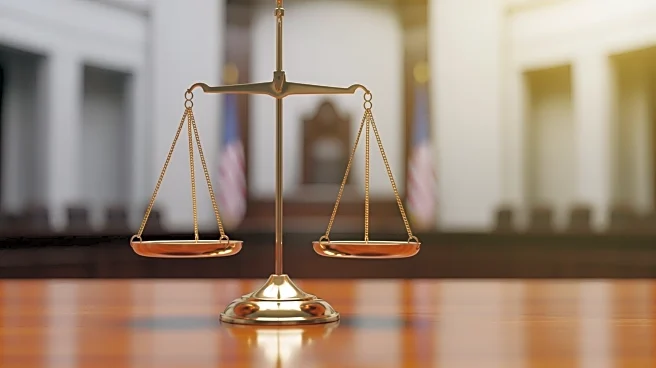What's Happening?
President Trump has signed executive orders aimed at ending cashless bail for criminal suspects across the United States, with a specific focus on Washington, DC. The orders instruct the DC US Attorney’s office to pursue federal charges against criminal defendants whenever possible. The initiative targets jurisdictions that have eliminated cash bail, directing federal agencies to identify and potentially suspend funding to these areas. The orders also call for the creation of a special unit within the DC National Guard to ensure public safety.
Why It's Important?
The move to end cashless bail represents a significant shift in criminal justice policy, potentially affecting pretrial detention practices and public safety. By targeting jurisdictions with cashless bail policies, the federal government may influence local crime policies and funding allocations. The emphasis on federal charges for DC suspects could lead to increased incarceration rates and impact the local legal system. These actions may also provoke legal challenges and debates over federal versus local authority in criminal justice matters.
What's Next?
The implementation of these orders may face opposition from local governments and civil rights organizations, potentially leading to legal battles over the constitutionality of federal intervention in local bail practices. The creation of a special National Guard unit may prompt discussions on the role of military forces in civilian law enforcement. Congress may also be called upon to address legislative changes related to cashless bail and federal crime policies.








